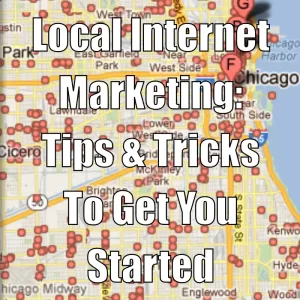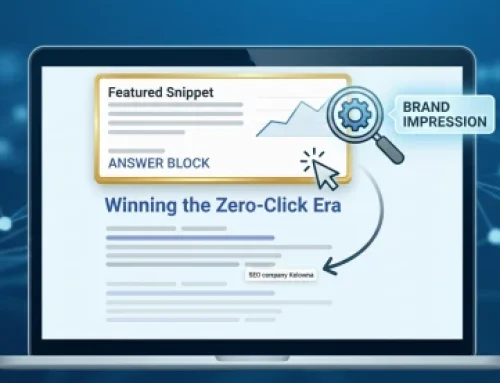 As a business owner, you may have heard about the importance of local internet marketing. In today’s digital world, having an online presence is essential to reach potential customers. However, it’s not enough to simply have a website. You need to optimize your online presence to improve your visibility and attract more local customers.
As a business owner, you may have heard about the importance of local internet marketing. In today’s digital world, having an online presence is essential to reach potential customers. However, it’s not enough to simply have a website. You need to optimize your online presence to improve your visibility and attract more local customers.
In this article, we’ll discuss some tips and tricks to help you get started with local internet marketing.
As with all our helpful information – if you feel this is “not for you” or are confused by anything we’ve suggested here, please do not hesitate to contact us.
1. Claim Your Google My Business Listing
Google My Business is a free tool provided by Google to help businesses manage their online presence. It allows you to create a business profile that appears in Google search results and Google Maps. This is crucial for local businesses, as it helps potential customers find you easily when they search for local products or services. As you may have noticed, for many product or service based searches map results appear before the organic results.
To claim your Google My Business listing, you need to sign up and verify your business information. This includes your business name, address, phone number, website, and hours of operation. You can also add photos and videos to your listing to make it more appealing. The more complete your business map listing, the greater chance you have of ranking in the “map pack” – the top 3 results that usually appear in search results.
2. Optimize Your Website for Local SEO
Search engine optimization (SEO) is the process of improving your website’s visibility in search engine results pages (SERPs). Local SEO focuses on optimizing your website for local searches, such as “best pizza restaurant near me.” This is crucial for local businesses, as it helps them appear higher in search results when people search for local products or services.
To optimize your website for local SEO, you need to include local keywords in your content, title tags, and meta descriptions. You should also include your business address, phone number, and hours of operation on your website, and make sure your website is mobile-friendly, and loads quickly.
3. Use Social Media to Connect with Local Customers
Social media is a powerful tool for businesses to connect with their customers. By using social media, you can promote your business, engage with your customers, and build your brand. You can also use social media to promote your local events and offer special promotions to your followers.
To get started with social media, you need to create profiles on the most popular social media platforms, such as Facebook, Twitter, and Instagram. You should also post regularly, respond to comments and messages promptly, and use hashtags to increase your visibility.
4. Get Listed in Local Directories
Local directories are online directories that list businesses in a particular area. These directories can help you reach more local customers and improve your online visibility. Some popular local directories include Yelp, Yellow Pages, and TripAdvisor.
To get listed in local directories, you need to create a profile and add your business information, including your business name, address, phone number, and website. You should also encourage your customers to leave reviews on these directories, as positive reviews can improve your visibility and attract more customers.
5. Offer Local Deals and Discounts
Offering local deals and discounts is a great way to attract more customers to your business. By offering special promotions to local customers, you can encourage them to visit your business and increase your sales.
To offer local deals and discounts, you can use social media, email marketing, local directories, and your Google Map listing. You can also partner with other local businesses to offer joint promotions, such as “buy one get one free” or “20% off for new customers.”
6. Build Local Citations and Backlinks
Citations and backlinks are important factors for improving your website’s authority and rankings in search engine results pages. Citations are mentions of your business’s name, address, and phone number on other websites, while backlinks are links from other websites to your website.
To build local citations and backlinks, you can submit your business information to local directories, sponsor local events, or collaborate with other local businesses and organizations. You can also reach out to local bloggers and journalists to pitch them story ideas or ask for a link back to your website.
7. Use Local Keywords in Your Content
Using local keywords in your content is crucial for improving your visibility in local searches. You should include your location and relevant keywords in your website’s content, such as your homepage, product pages, and blog posts.
For example, if you own a bakery in Kelowna, you could include keywords such as “Kelowna bakery,” “freshly baked bread,” and “pastries near me” in your content.
8. Monitor Your Online Reputation
Monitoring your online reputation is important for maintaining a positive image and attracting more customers. You should regularly check your business’s reviews and respond to any negative feedback promptly and professionally. You should also encourage your customers to leave reviews on your Google My Business listing and other online directories.
By monitoring your online reputation, you can also identify areas for improvement and make changes to improve your customer experience.
9. Analyze Your Website’s Performance
Analyzing your website’s performance is important for identifying areas for improvement and measuring the effectiveness of your local internet marketing efforts. You can use tools such as Google Analytics to track your website’s traffic, bounce rate, and conversion rate. Google search console is another tool you can use to help monitor technical issues found on your website.
You should regularly analyze your website’s performance and make changes to improve your website’s user experience and conversion rate. This can include improving your website’s loading speed, optimizing your landing pages, and testing different calls to action.
Conclusion: Putting it all together
Local internet marketing is essential for local businesses to improve their online visibility and attract more local customers. By claiming your Google My Business listing, optimizing your website for local SEO, using social media to connect with local customers, getting listed in local directories, offering local deals and discounts, building local citations and backlinks, using local keywords in your content, monitoring your online reputation, and analyzing your website’s performance, you can improve your online presence and grow your business.
Remember that local internet marketing is an ongoing process that requires time, effort, and resources. By following these tips and tricks, you can get started with local internet marketing and improve your chances of success.
If you feel overwhelmed or are unsure how to proceed with local SEO, don’t worry. We are here to help. Contact us to find out how our Local SEO campaigns work.
Let’s Work Together
TELL US MORE ABOUT YOUR PROJECT
Let us help you get your website found. Or, if you simply have a few questions, then fill out the form below and we will get back to you.

